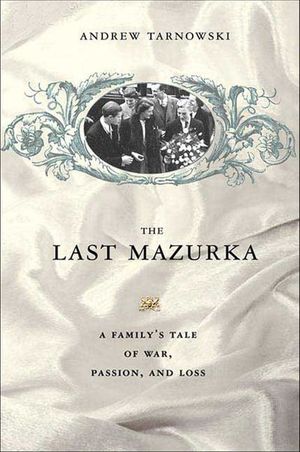The Last Mazurka
Published by St. Martin's Publishing Group
A “charming, melancholic and engrossing” chronicle of an aristocratic Polish family’s rise and fall of fortunes in the twentieth century (Kirkus Reviews).
“A stunning multigenerational family memoir. . . . Achingly beautiful and bittersweet, this intimate family chronicle reads like a novel.” —Booklist
The shot Count Hieronim Tarnowski fired on his wedding night in 1914, on the eve of the First World War, was like a tocsin that sounded the doom of his ancient Polish family. When, in August 1939, on the eve of another war, his daughter Sophie saw blood pouring down the side of her train, she felt a terrible foreboding and knew her idyllic world would be swept away. Thirty years later, when Count Hieronim’s British grandson Andrew learned of the death of his mother—the beautiful, fragile, and abused Chouquette—his sense of a lost identity deepened and he set out to rediscover the world from which he came. These moments punctuate an extraordinary tale of the downfall of a once-powerful family, which in turn mirrors the twentieth-century fate of a nation ravaged by invasions and crushed by tyranny.
Before 1945, Poland, now a fledgling EU country, was an almost Tolstoyan world of wolf hunts and extravagant wealth, set alongside great poverty and a semifeudal peasantry, in a landscape of frozen fields and dark forests. Broken by war, it was reduced by Communism to drab uniformity, and a way of life was lost forever.
This world out of time is the setting for Andrew Tarnowski’s memoir, The Last Mazurka, a tale of loss and exile, love and violence, wandering and longing, told with poignancy and unexpected humor, and a lingering regret.
BUY NOW FROM
COMMUNITY REVIEWS

